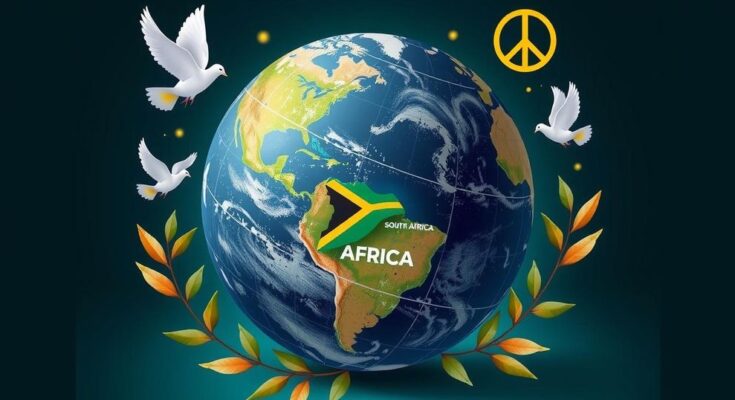Ukrainian President Volodymyr Zelensky is set to visit South Africa in April, amid strained relations between the U.S. and South Africa and the country’s neutral stance on the Ukraine-Russia conflict. Experts suggest that Western lobbying influenced this invitation, yet questions remain about South Africa’s capability to mediate in such a complex dispute involving superpowers.
President Volodymyr Zelensky of Ukraine is set to visit South Africa in April. This visit comes in light of the Ukrainian president’s recent rejection by the United States, alongside escalating diplomatic tensions following former President Trump’s executive order that ceased aid to South Africa. The invitation for Zelensky has raised eyebrows, given South Africa’s longstanding policy of non-alignment regarding the Ukraine-Russia conflict and its relationship with Russia.
Doctor Kingsley Makhubela, a risk analyst and former diplomat, speculates that this invitation is a result of extensive lobbying by Western governments. He postulates that various heads of state may have urged South Africa to engage with Zelensky, possibly to counter the perceived isolation of the Ukrainian leader and to assert that developing nations stand with Ukraine, in defiance of the Americans.
The ongoing conflict between Ukraine and Russia shows no sign of resolution, yet President Zelensky faces intensified demands to negotiate with Russian President Vladimir Putin, which he consistently resists. Dr. Makhubela contends that it is unrealistic to expect South Africa to take on mediatory roles in a dispute involving global superpowers, stating that such ambitions may overstress South Africa’s capabilities. He expresses skepticism regarding the South African presidency’s hopes that Zelensky’s visit might facilitate peace talks, questioning the feasibility of such expectations.
In summary, President Zelensky’s forthcoming visit to South Africa raises significant diplomatic questions, particularly considering South Africa’s neutral stance on the Ukraine-Russia conflict and existing relations with Russia. The implications of Western lobbying and the limitations of South Africa’s role as a mediator remain central to the discourse, as experts highlight the complexity of international relations amidst ongoing global tensions.
Original Source: vocfm.co.za




